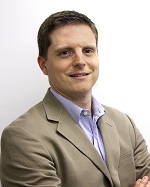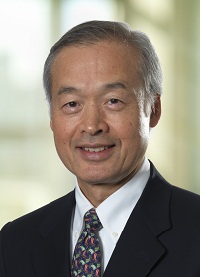 Dr. Tadataka "Tachi" Yamada is a Big Pharma veteran on a new tour of duty in the drugs business after a stint at the Bill & Melinda Gates Foundation, where he headed the global health program. The test he's faced for more than a year is to engineer a turnaround in the R&D group at Takeda Pharmaceutical.
Dr. Tadataka "Tachi" Yamada is a Big Pharma veteran on a new tour of duty in the drugs business after a stint at the Bill & Melinda Gates Foundation, where he headed the global health program. The test he's faced for more than a year is to engineer a turnaround in the R&D group at Takeda Pharmaceutical.
Fresh off his first full year on the job, Yamada caught up with me during the J.P. Morgan Healthcare Conference in San Francisco last week and shared insights into where he's leading the next era of drug research at Japan's largest pharma company. And he noted an emphasis on discovering and developing truly "revolutionary" medicines. Yet don't expect him to show you all his cards.
Yamada, who earlier led R&D at GlaxoSmithKline ($GSK), is among a new lineup of top executives at Takeda. The drugmaker has recognized a need for changes to R&D amid the loss of patent protection on its best-selling diabetes drug Actos last year and its long dry spell for creating new blockbusters.
Where does Yamada fit into the solution? Many places. Takeda bought the Swiss drugmaker Nycomed for $13 billion in 2011 as part of its strategy to expand around the globe and particularly in emerging markets such as Russia. At the Gates Foundation, the world's largest health charity, Yamada saw first hand how desperate the situation is for patients outside of established markets.
 |
| Tadataka Yamada, M.D., Chief Medical & Scientific Officer of Takeda |
"I certainly got a sense of urgency at the Gates Foundation that was very different from what I had in academia or even in industry," Yamada said in the interview. "If you really spend a lot of time in the field with a lot of people who are suffering badly, it's just different and gives you a different perspective on your work."
"Imparting that on the R&D organization is a task that I've taken on," he added, "and quite frankly I think it's had a significant impact on how well people are working every day in the company."
Yamada has pushed for the expansion of vaccines development at Takeda, which set up a new unit for this work in late 2011 to build on its $400 million business in Japan. The company poached Rajeev Venkayya from the Gates Foundation to head the division, which beefed up its pipeline in October with a norovirus vaccine from its $60 million buyout of LigoCyte Pharmaceuticals.
He compared Takeda's post-Actos dry spell in R&D to the growing pains of Glaxo after the blockbuster success of its antacid drug Zantac and after the earlier success of Tagamet at SmithKline decades ago. (Glaxo Wellcome and SmithKline Beecham merged in 2000 into GSK, where Yamada was R&D chairman.) He's taken lessons learned from his GSK experience to his new job.
"They [Glaxo and SmithKline] went from small companies to big companies. You grow the organization, you grow R&D, you spend a lot of money, you put in bureaucratic processes," Yamada said. "Everything gets in the way of actually allowing scientists to do their best work."
Along the same lines as forming a focused vaccines division, Yamada has advocated for organizing R&D by disease area rather than region. A model of this approach is Millennium Pharmaceuticals, which has maintained some autonomy as the oncology unit of Takeda, which bought the maker of the blood cancer drug Velcade in 2008. The idea: Eliminate bureaucratic hurdles to productivity in R&D.
Takeda isn't quite in the top 10 among global drugmakers, but the company boasts the 7th-largest pipeline in the industry, according to its presentation at the conference. Yamada noted that 31% of the pipeline assets are in late-stage trials. Millennium is leading development of three late-stage contenders, TAK-700 for prostate cancer, MLN9708 for multiple myeloma and MLN0002 for ulcerative colitis and Crohn's disease.
In an effort to revive its diabetes franchise, Takeda is in the final stage of development for a first-of-a-kind GPR40 agonist called TAK-875, designed to provide glucose-dependent insulin secretion.
With a rich late-stage pipeline at Takeda, Yamada wants the company to focus on growing its ranks of earlier-stage drug candidates. To do this the company has landed a variety of deals, including the purchase of Intellikine for $310 million to acquire anti-cancer drugs and more recently the acquisition of Envoy Therapeutics last year for $140 million.
Takeda has formed a New Frontier Science group to scout out the hottest research in academia and elsewhere and form collaborations with scientists behind those innovations. At the J.P. Morgan conference, Yamada said, he was attending many meetings with members of the biotech community.
Asked what technologies he'd seen that fit the bill as "revolutionary," Yamada quipped: "I could tell you, but then I'd have to kill you." -- Ryan McBride (email | Twitter)